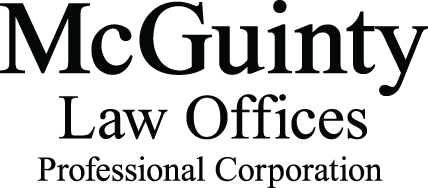
14 Feb Important Differences Between Mediation and Collaborative Practice
It might seem impossible to achieve a calm divorce or separation, but we here at McGuinty Law Offices are dedicated to resolving family issues in a heartfelt manner. We do this in a few ways including employing mediation and collaborative practice with our clients.
While mediation and collaborative practice have similar aims, they do have a lot of differences. This post will look at the differences between these two approaches and determine which one is best for you.
What Is Mediation?
Mediation is a process in which a neutral third person (mediator) meets with both parties to assist and guide them in reaching an agreement. This is frequently done without the presence of a lawyer. The mediator does not provide legal advice or serve as a judge, and they don’t instruct the people involved on what they should do. Instead, the mediator’s role is to assist both parties in comprehending each other’s viewpoints.
It’s helpful to think of a mediator as a problem-solving coach. They are there to ask questions and learn about major issues that underpin both clients’ viewpoints on each subject. Once these issues are identified, the clients collaborate to develop ideas which will ultimately lead to a resolution.
The mediator will prepare a report after the mediation session. This isn’t a legally enforceable document. After that, you employ attorneys to convert your agreement into a legally enforceable separation agreement.
What Is Collaborative Practice?
During the negotiating phase, both parties and their attorneys participate in collaborative practice. Participants agree to respect one another without going to family court and work toward common objectives. Lawyers who practice collaborative law have comparable training as mediators. However, they collaborate with their clients (and the other lawyer) to create a fair and favourable resolution. Settlement is a major goal for everyone throughout this procedure.
You’ll have a family coach to assist in getting through emotional challenges if you practice collaboratively. They will also assist in preparing for talks, and if required, creating a parenting plan. You will also get the opportunity to meet with a financial consultant who will assist in resolving any financial concerns. Professionals in the family and financial fields may act as mediators; they try to uncover the root causes of your problems to assist in finding a solution.
Differences Between Mediation and Collaborative Practice
Mediators, unlike collaborative practice lawyers, are neutral. Collaborative practice lawyers advocate for you and work with you to find long-term solutions. At the same time, your lawyer will consider your spouse’s primary concerns and ensure that the agreement is agreeable to both of you.
The second significant distinction is that the family professional and financial professional will both assist you with your education in collaborative practice. Throughout the procedure, they will offer you as much information as possible so you and your spouse can make the best choices possible. The family professional will assist you in navigating the emotions which may arise as a result of your divorce. This will assist in preparing for the discussions.
If the mediation process fails to produce an agreement and you must go to court, you can retain the same counsel. In addition, collaborative practice attorneys sign an agreement indicating that the procedure will be terminated if you go to family court. If you do go to court, the collaborative practice attorneys and anyone else engaged are barred from taking part in your case. The disqualification clause guarantees everyone is dedicated to resolving your case rather than merely preparing for court in collaborative cases.
Similarities Between Mediation and Collaborative Practice
Mediation and collaborative practice are comparable in many aspects, despite their differences. In the following aspects, they are similar:
- During mediation and collaborative practice, core issues are addressed and discussed in the settlement process.
- Both procedures are geared toward your future. Rather than looking for blame, the emphasis is on finding a solution.
- You’ll discover new and easier methods to interact with your partner, while still preserving your marriage.
- Your spouse and you have greater influence over the separation or divorce resolution process and result; in family court, the judge has such authority.
- Both mediation and collaborative practice are personal endeavours. The court is accessible to the general public.
- Both methods are less expensive than going to court (financially as well as emotionally).
- When compared to family court, both systems are usually speedier in resolving disputes.
- Both processes encourage open dialogue and courteous communication.
Both mediation and collaborative practice depend on sharing information and commitment. The purpose of mediators and collaborative practitioners is to find the most agreeable solution to your problems. They are both problem-solvers who help discover the best solution for everyone concerned. Speak with your family lawyer to decide which route is best for you.
If You Have Questions, Contact McGuinty Law Offices
Finding an agreeable solution to your family law problems is our specialty, and we can accomplish this through mediation and collaborative practice. At McGuinty Law Offices, we observe firsthand how beneficial collaborative practice and mediation are for our clients daily. We can assist in smoothing the divorce and separation process for all individuals we deal with by keeping our clients out of court.
Book a consultation with us today to engage with one of our professional collaborative family lawyers and learn more about these procedures.
More information on mediation and collaborative practice can be found online at mcguintylaw.com or by calling us in Ottawa at (613) 526-3858.



